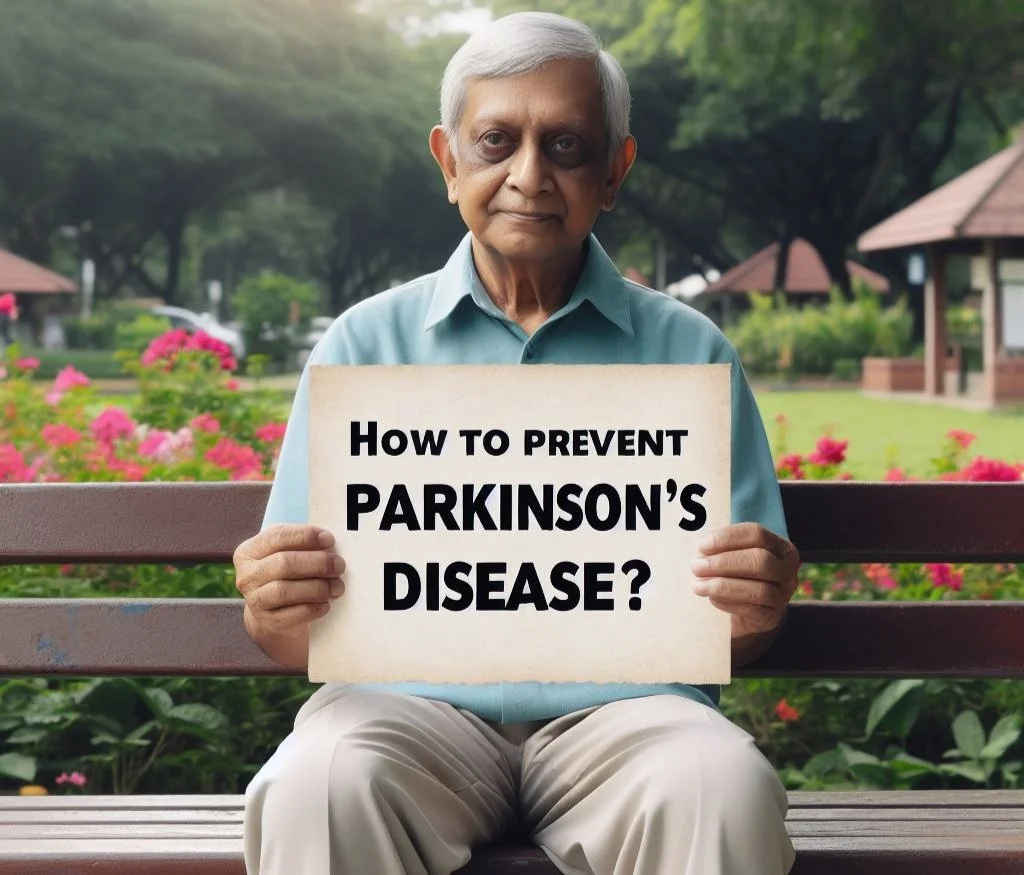How to prevent Parkinson's disease?
2/18/24, 6 mins reading
Parkinson’s disease is a chronic, progressive, neurodegenerative disorder. The hallmark of the disorder is the death of dopamine-producing neurons in the midbrain. Although no known cause has been identified, and there is no cure so far, there are scientific ways in terms of lifestyle that can be done to delay the progress or mitigate symptoms. Among all of them, diet and exercise are the two most critical components
Environment Adopting an organic lifestyle. Pesticides and herbicides have been long implicated in Parkison’s disease. For example, Agricultural workers with more exposure to pesticides have been found with a higher chance of Parkinson’s disease. plus, a higher amount of Pesticides and herbicides has also been associated with Parkinson’s disease patients. Minimizing the adoption of Pesticides and herbicides will significantly reduce the risk of Parkinson’s disease.
Food The death of Dopaminergic neurons in the brain is the root cause of Parkinson’s disease. Amino acids tyrosine and phenylalanine are two precursors that generate dopamine in the brain. therefore, any food with rich tyrosine and phenylalanine would help the body produce and supply enough dopamine for the brain. These foods include
Nuts and seeds: peanuts, walnuts, almonds etc
Fruit and vegetable.
Berries and beans
All animal products.
Fish and egg.
Milk, cheese, and yogurt.
Dark chocolate
Supplements
Vitamin B (folic acid). A Study has shown that vitamin B exhibits the preventive effect of developing Parkinson’s disease.
Omega 3 Fatty acid. Studies have shown that Omega 3 fatty acid benefits the body in preventing or delaying Parkinson’s disease in multiple ways including synthesis of anti-inflammatory mediators, cell membrane fluidity, and intracellular signaling.
Vitamin D. Vitamin D helps your body absorb Calcium and increase bone density
CoQ10 and Green tea. Both CoQ10 and green tea are antioxidants. The ability of anti-oxidation prevents your body from the invasion of free radicals.
Organic. Both pesticides and herbicides have been long known to be factors that contribute to Parkinson’s disease. Going organic or planting and growing your vegetables in your backyard will allow you to avoid any kinds of pesticides and herbicides if it is possible.
Drinking
Tea Tea has a protective impact on Parkinson’s disease. Study has shown drinking a moderate amount of tea will decrease the risk of Parkinson’s disease. Plus, tea drinking also helps alleviate cognitive and mental issues in Parkinson’s disease
Coffee Coffee is another item to be shown that is protective against Parkinson’s disease. Not only does it help decrease the risk of Parkinson’s disease, it also helps improve Parkinson’s disease symptoms including motor and non-motor symptoms.
Exercise
Exercise and physical therapy have long been proven beneficial to the health of Parkinson’s disease patients. Both exercise and Physical therapy improve health through a variety of means including increasing lung capacity and bone density, boosting muscle strength and coordination, increasing the production of dopamine, and refreshing the brain.
A recent review has shown that the risk of developing Parkinson’s disease is inversely associated with the amount of exercise throughout life. The review also found that exercise presents more benefits for people of 30-40 years and those at the end of life. People practicing physical activities during those two periods bear a 40% lower chance of developing Parkinson’s disease compared to those without practicing physical activities.

